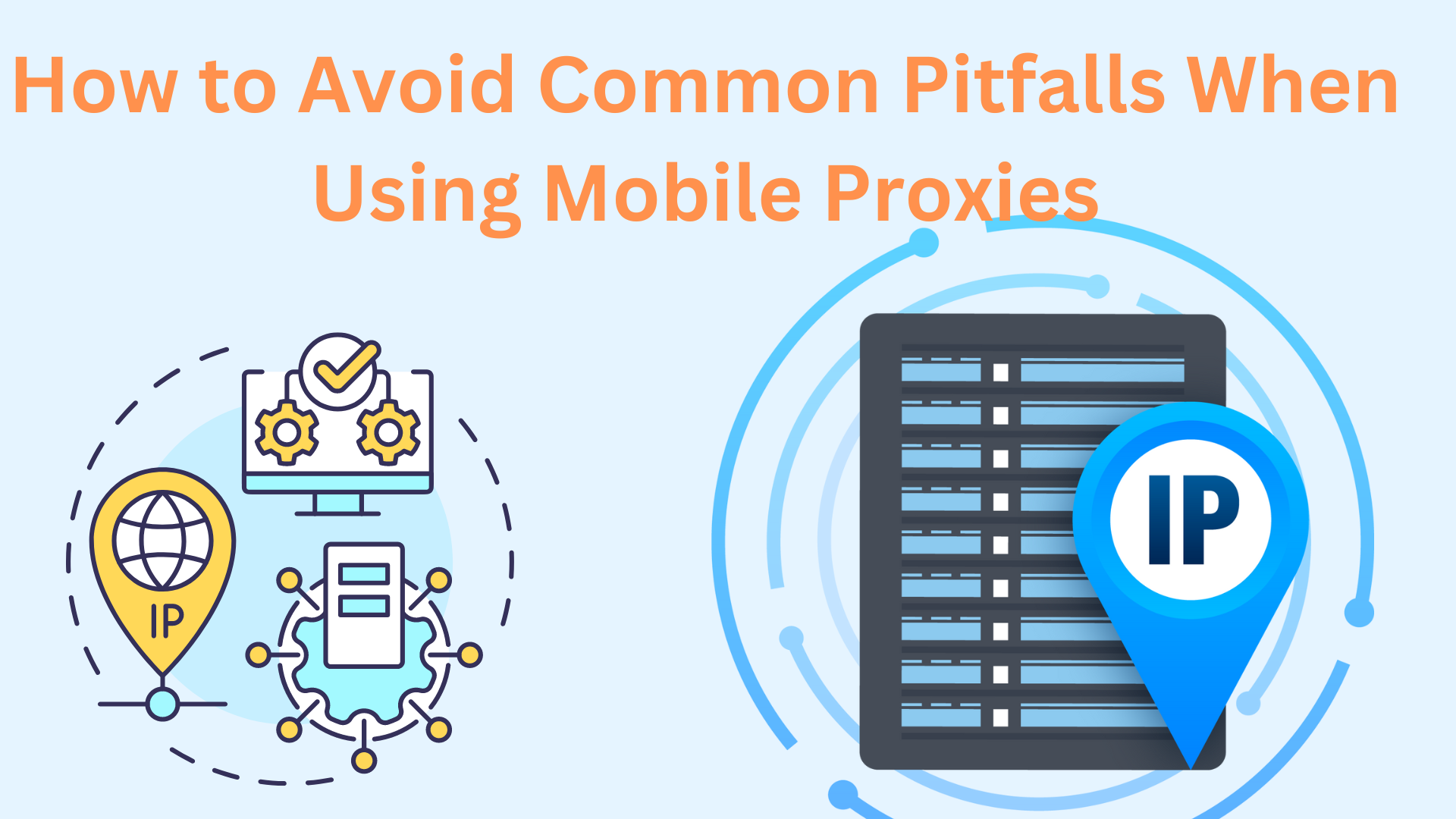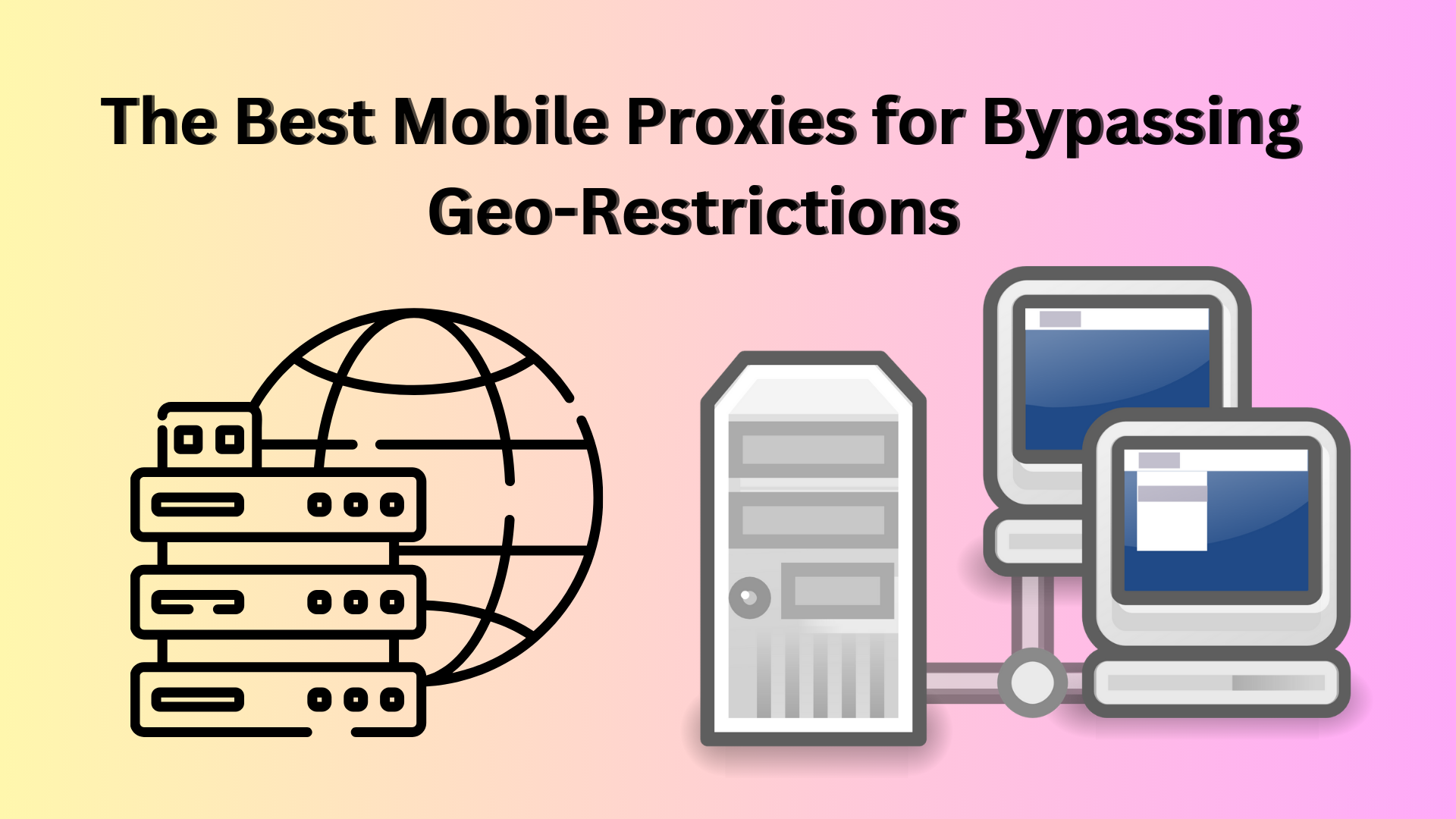Introduction
Mobile proxies are powerful tools that provide enhanced privacy and access to geo-restricted content by routing your internet traffic through mobile IP addresses. However, like any technology, they come with their own set of challenges and potential pitfalls. Understanding and avoiding these common issues can help you make the most of your mobile proxy service and ensure smooth, effective usage. In this guide, we’ll explore common pitfalls associated with mobile proxies and provide practical tips to help you navigate them successfully.
1. Choosing the Right Mobile Proxy Provider
Understanding the Importance
The effectiveness of your mobile proxy largely depends on the quality of the provider. Choosing a reputable and reliable provider is crucial to avoid performance issues and ensure secure browsing.
Common Pitfalls
- Unverified Providers: Some providers may offer cheap or free services that lack reliability and security.
- Limited IP Pool: Providers with a small number of IP addresses can lead to frequent bans or detection.
How to Avoid These Issues
- Research Providers: Look for established providers with positive reviews and a track record of reliability.
- Check IP Pool Size: Ensure the provider offers a large and diverse pool of IP addresses.
- Evaluate Support: Choose providers that offer responsive customer support for troubleshooting.
2. Managing IP Rotation
Why IP Rotation Matters
IP rotation is crucial for maintaining anonymity and avoiding detection. Frequent IP changes prevent websites from identifying and blocking your activity.
Common Pitfalls
- Inconsistent Rotation: Some proxies may not rotate IPs frequently enough, leading to detection.
- Lack of Control: Limited control over IP rotation settings can hinder your ability to manage traffic effectively.
How to Avoid These Issues
- Opt for Automatic Rotation: Choose proxies with built-in automatic IP rotation to ensure consistent anonymity.
- Customize Rotation Settings: If possible, adjust rotation frequency and settings based on your needs.
- Monitor Performance: Regularly check rotation logs and performance to ensure optimal functioning.
3. Dealing with Speed and Performance Issues
Understanding Speed Concerns
While mobile proxies offer enhanced anonymity, they can sometimes result in slower speeds compared to data center proxies. Performance issues can impact browsing and data-intensive tasks.
Common Pitfalls
- Slow Speeds: Some mobile proxies may suffer from slower connection speeds due to network congestion or limited bandwidth.
- Inconsistent Performance: Variability in speed and performance can affect your user experience.
How to Avoid These Issues
- Test Speed Regularly: Use speed testing tools to monitor and compare the performance of different proxies.
- Choose High-Quality Providers: Opt for providers known for their reliable and high-speed proxies.
- Optimize Usage: Adjust your proxy usage to minimize the impact on performance, such as avoiding peak hours.
4. Ensuring Compliance with Terms of Service
The Importance of Compliance
Using mobile proxies responsibly and ethically is essential to avoid legal and ethical issues. Violating the terms of service of websites or proxy providers can lead to penalties or bans.
Common Pitfalls
- Ignoring Terms: Failing to read and adhere to the terms of service of websites and proxy providers.
- Excessive Scraping: Using proxies for excessive scraping or data extraction beyond acceptable limits.
How to Avoid These Issues
- Read Terms of Service: Familiarize yourself with the terms and conditions of both your proxy provider and the websites you access.
- Use Proxies Ethically: Avoid activities that violate the terms of service or ethical guidelines, such as aggressive scraping.
- Implement Best Practices: Follow best practices for proxy usage, including respecting rate limits and avoiding spammy behavior.
5. Securing Your Mobile Proxy Setup
Why Security Matters
Ensuring the security of your mobile proxy setup is vital to protect your data and privacy. Insecure configurations can lead to vulnerabilities and data breaches.
Common Pitfalls
- Unencrypted Traffic: Using proxies without encryption can expose your data to potential threats.
- Weak Authentication: Inadequate authentication measures can lead to unauthorized access.
How to Avoid These Issues
- Use Encrypted Connections: Ensure that your proxy provider offers encryption to protect your data.
- Implement Strong Authentication: Use strong and secure authentication methods to prevent unauthorized access.
- Regularly Update: Keep your proxy software and security measures up to date to address potential vulnerabilities.
6. Understanding Regional Restrictions
Navigating Geo-Restrictions
Mobile proxies can help you access geo-restricted content by routing traffic through IP addresses from different regions. However, not all proxies may effectively bypass these restrictions.
Common Pitfalls
- Limited Geo-Coverage: Some proxies may not offer IPs from the specific regions you need.
- Detection Issues: Advanced geo-restriction mechanisms may still detect and block proxy traffic.
How to Avoid These Issues
- Choose Providers with Global Coverage: Opt for proxies with a wide range of IP addresses across various regions.
- Test Access: Regularly test your proxies to ensure they effectively bypass geo-restrictions.
- Stay Updated: Be aware of changes in geo-restriction mechanisms and adjust your proxy strategy accordingly.
Conclusion
Using mobile proxies can greatly enhance your online privacy and access to restricted content, but it’s essential to avoid common pitfalls to maximize their effectiveness. By choosing the right provider, managing IP rotation, addressing speed issues, ensuring compliance, securing your setup, and understanding regional restrictions, you can make the most of your mobile proxy service. Implementing these best practices will help you navigate challenges and maintain a smooth, secure browsing experience






Pingback: Mobile Proxies for E-Commerce: Enhancing Security and Performance
Pingback: Mobile Proxies vs. Residential Proxies: What’s the Difference?